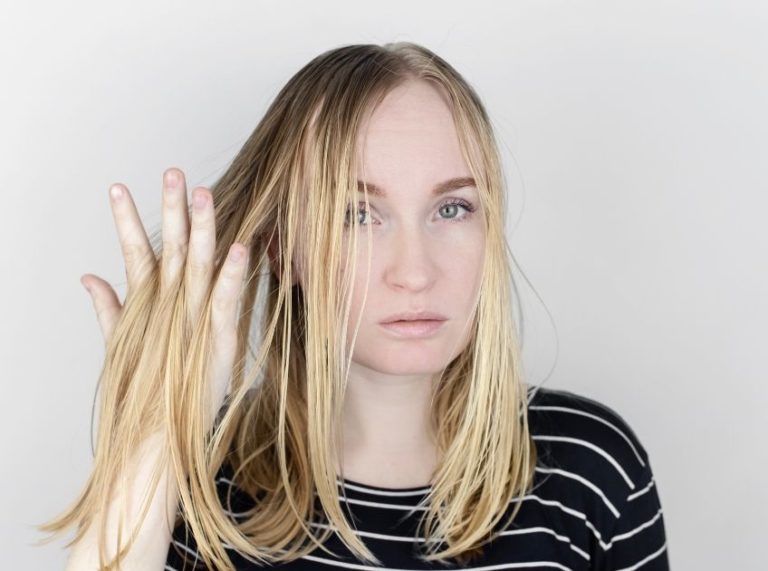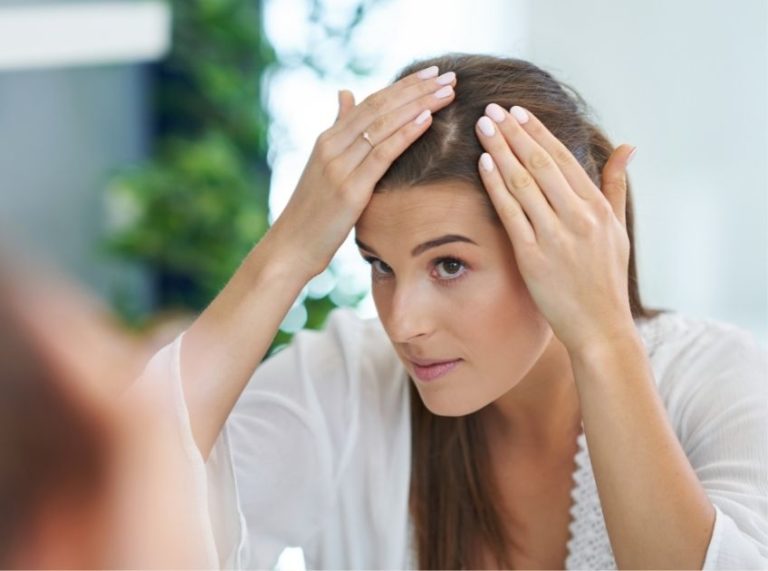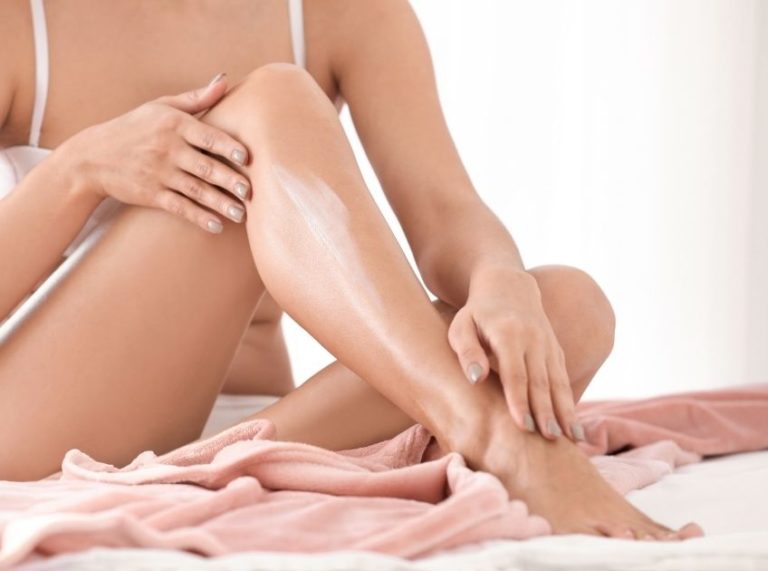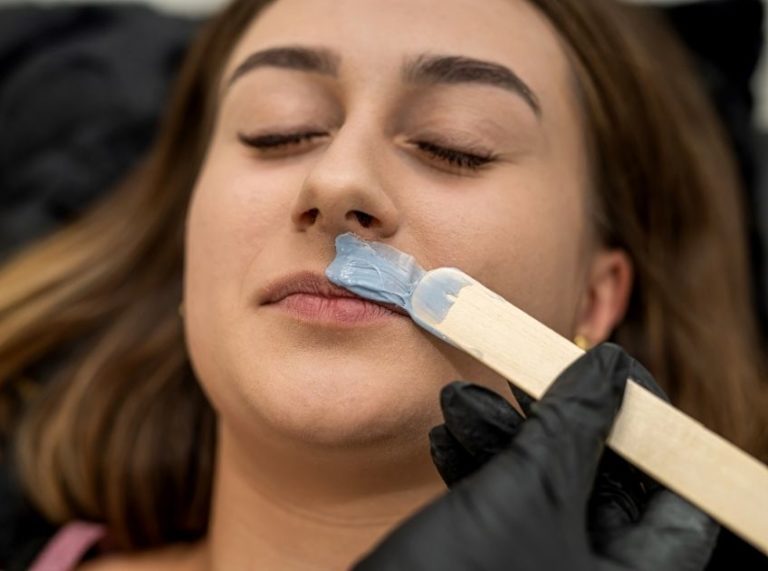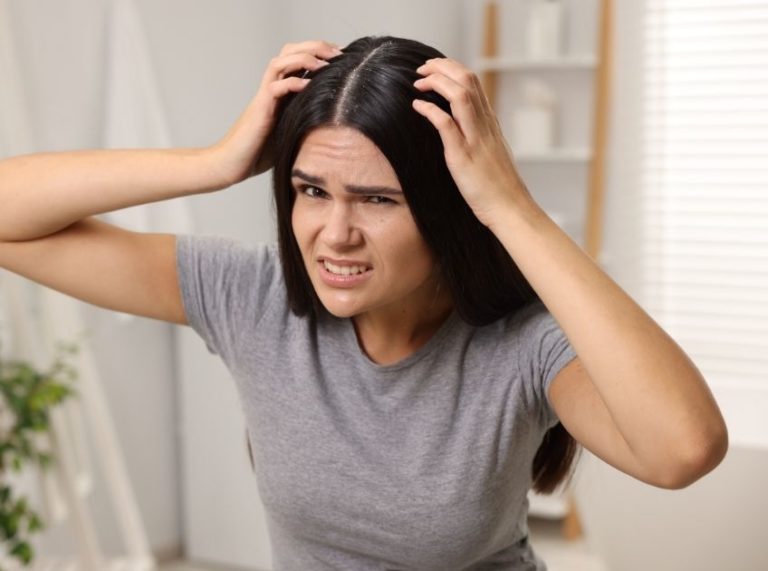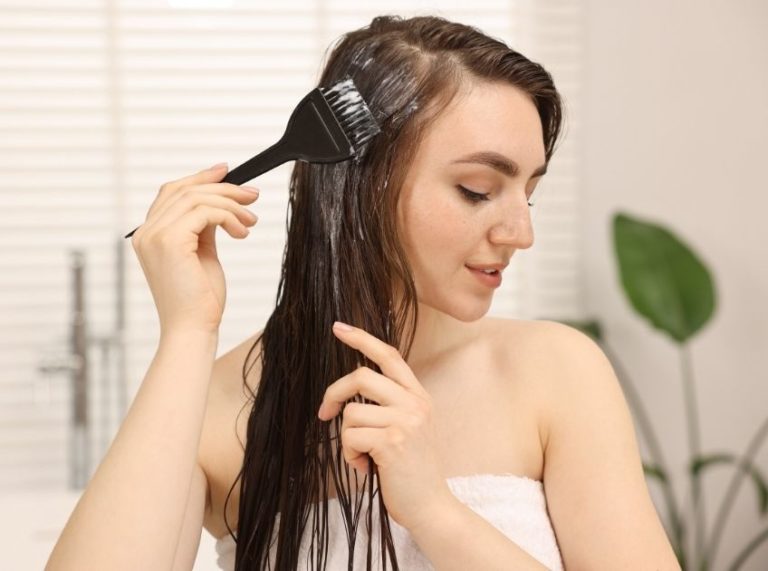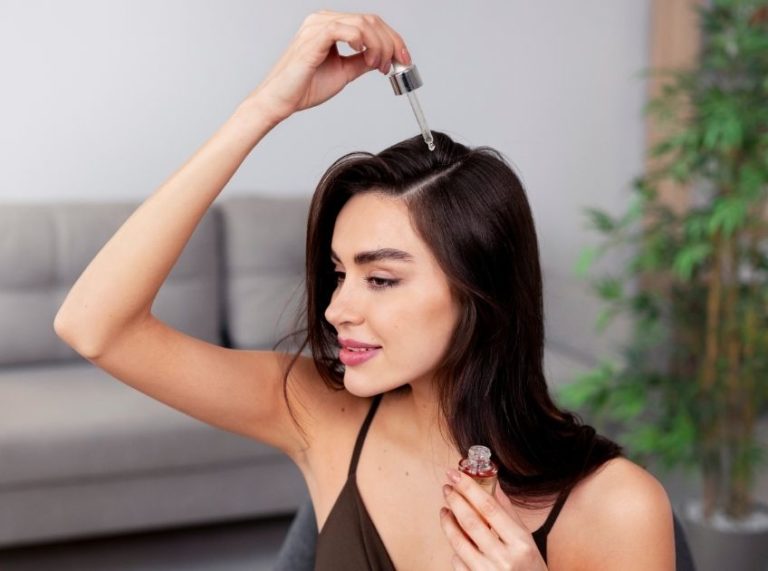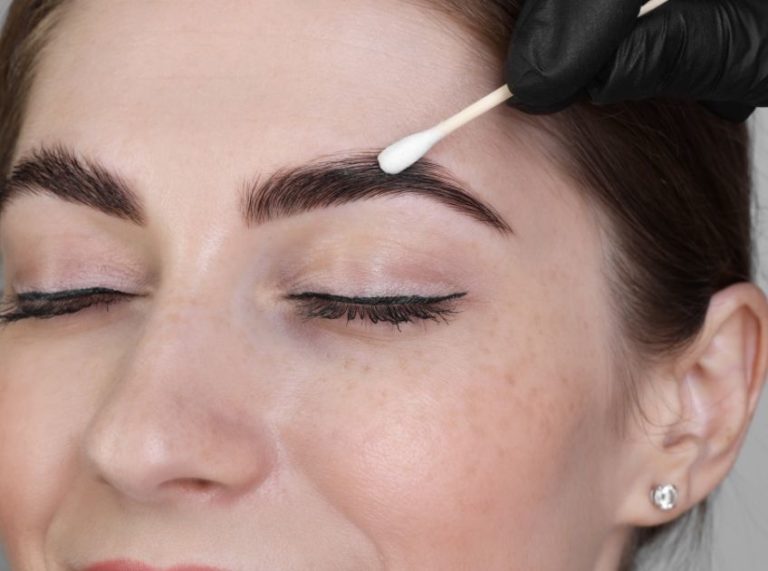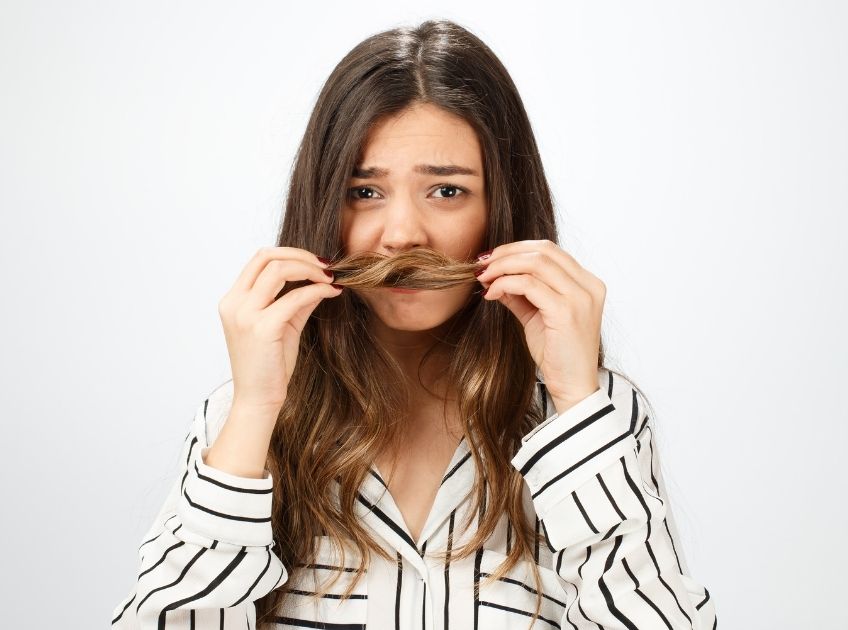
Important: This article is for informational purposes only. Please read our full disclaimer for more details.
Hair odor is a surprisingly common issue, yet many people feel embarrassed to talk about it. Whether your hair smells oily, smoky, sweaty, or musty, the root cause is usually linked to what’s happening on your scalp—not the hair strands themselves. Because hair absorbs odors from the environment and traps oil easily, even a clean-looking scalp can develop an unpleasant smell.
Several factors—from sebum buildup to sweat, environmental pollutants, and microbial overgrowth—can contribute to unwanted scalp odor. The good news? Once you understand what’s causing the smell, you can treat it effectively and prevent it from coming back.
What Does Hair Odor Smell Like?
If you’ve noticed your hair giving off an unpleasant scent, it can typically fall into a few categories:
- Oily or greasy smell: Often caused by excess sebum mixing with sweat and dirt.
- Musty or sour smell: Common when moisture gets trapped on the scalp, especially after not drying hair completely.
- Sweaty smell: Linked to workouts, heat, or scalp sweating disorders.
- “Wet dog” smell: Occurs when bacteria interact with damp hair and scalp oils.
- Smoky or environmental odor: Hair acts like a sponge and easily absorbs smells from pollution, cooking, or smoke.
While these odors may seem random, they all tie back to scalp microbiome imbalances, hygiene habits, or external exposure.
Why Does My Hair Smell? The Real Reasons Behind Scalp Odor
Hair odor can have multiple causes, and understanding them can help you choose the right solution.
1. Sebum Buildup on the Scalp:
- Your scalp naturally produces oil (sebum) to moisturize hair. But excess sebum can trap dirt, sweat, and bacteria, creating a noticeable smell. Research shows that an overproduction of sebum can alter the scalp’s microbiome, allowing odor-causing bacteria to thrive (1).
2. Sweat and Humidity:
- Sweat itself isn’t smelly, but when it mixes with scalp bacteria, it produces an unpleasant odor. High humidity or intense workouts can worsen the smell because moisture lingers on the scalp longer.
3. Unwashed Hair or Incorrect Washing Routine:
- Not washing hair frequently enough can cause odor—but overwashing can also trigger problems. Harsh shampoos strip natural oils, causing the scalp to rebound by producing even more sebum.
4. Scalp Conditions Like Seborrheic Dermatitis:
- Conditions such as dandruff or seborrheic dermatitis can cause flaking, irritation, and odor. These conditions result from yeast overgrowth, particularly Malassezia, a fungus linked to dandruff and scalp odor.
5. Environmental Pollution and Smoke:
- Hair fibers absorb odors from cooking, cigarette smoke, or smog. Even if your scalp is clean, air pollutants cling to hair cuticles and create lingering smells.
6. Residue From Hair Products:
- Using too many hair products—dry shampoo, gels, creams, sprays—can create buildup. This buildup interacts with scalp oils, leading to a greasy or stale smell.
7. Fungal or Bacterial Overgrowth:
- An imbalanced scalp microbiome allows certain bacteria and fungi to multiply. A 2018 dermatology review highlighted how microbial imbalance often contributes to conditions involving odor and inflammation (2).
How Do I Get Rid of Smelly Hair? Effective Remedies That Work
Clearing scalp odor requires targeted care that restores balance and cleanses effectively.
1. Use a Clarifying Shampoo Weekly:
- Clarifying shampoos remove product buildup and deep-clean the scalp. Use once a week to avoid dryness.
2. Wash Your Hair at the Right Frequency:
There’s no single rule for everyone, but:
- Oily scalps: Every 1–2 days
- Normal scalps: Every 2–3 days
- Dry scalps: Every 3–4 days
Adjust based on sweat, activity levels, and hair type.
3. Try Tea Tree Oil or Antifungal Shampoos:
- Tea tree oil–based products have antimicrobial properties that help control odor-causing bacteria. Studies indicate that tea tree oil can reduce dandruff and microbial activity on the scalp (3).
- You may also consider zinc pyrithione or ketoconazole shampoos if dandruff or fungus is the cause.
4. Rinse With Apple Cider Vinegar:
- When diluted properly, apple cider vinegar helps balance scalp pH and reduce odor. Mix one tablespoon of ACV with one cup of water and use as a post-shampoo rinse.
5. Keep Your Scalp Dry After Washing:
- Never tie wet hair or sleep with a damp scalp. Moisture trapped at the roots is a major cause of musty odors.
6. Brush Regularly to Even Out Oil Distribution:
- Brushing distributes natural oils from the scalp to the hair strands, preventing buildup in one area.
7. Avoid Heavy Styling Products:
- Silicones, waxes, and thick gels can trap odors and clog hair follicles. Choose lightweight, non-comedogenic formulas.
Smart Habits to Prevent Hair and Scalp Odor
Once you’ve eliminated the smell, the next step is preventing it from returning.
- Clean Your Hairbrushes and Hair Tools: Brushes collect oil, dirt, and bacteria. Wash them weekly with warm water and mild soap.
- Change Pillowcases Frequently: Pillowcases absorb oil and sweat. Switching them twice a week can help maintain scalp freshness.
- Tie Hair Up During Workouts: Keeping hair off your neck and face reduces sweat absorption and odor accumulation.
- Reduce Heat and Humidity Exposure: In humid climates, hair absorbs more moisture. Use lightweight anti-frizz serums to reduce absorption and consider protective hairstyles.
- Eat a Balanced Diet: Strong body odor—including scalp odor—is sometimes linked to diet. Foods heavy in spices, garlic, and onions may affect body scent.
Why Does My Hair Still Smell Even After Washing?
If your hair continues to smell even after thorough washing, a few underlying causes may be at play:
- Using the Wrong Shampoo: Hydrating shampoos can sometimes be too rich for oily or fine hair, leaving behind residue that smells.
- Incomplete Rinsing: Leftover shampoo or conditioner can ferment with scalp oils, creating an unpleasant scent.
- Scalp Infection or Dermatitis: If odor persists along with itching, redness, or flaking, you may have seborrheic dermatitis, fungal infection, or bacterial imbalance. Dermatological treatment may be necessary.
- Hormonal Changes: Hormonal fluctuation increases sebum production, which can lead to faster buildup and persistent odor.
- Overuse of Dry Shampoo: While convenient, dry shampoo can clog follicles and worsen odor over time.
If a persistent, recurring odor continues despite proper hygiene, a dermatology consultation is recommended.
Frequently Asked Questions (FAQ’S)
1. Can stress make my scalp smell?
A. Indirectly, yes. Stress increases cortisol levels, which can trigger excess oil production, creating a breeding ground for odor-causing bacteria.
2. Do certain hair types smell more?
A. Oily hair types and fine hair tend to show odor faster because they absorb sebum more easily. Curly hair may trap sweat at the roots, contributing to odor if not dried properly.
3. Can smelly hair be a sign of a medical issue?
A. Occasionally. Persistent odor with itching, redness, flakes, or sores may indicate seborrheic dermatitis, psoriasis, or a fungal infection and requires medical care.
Smelly hair is almost always a sign of something happening on the scalp—whether it’s excess oil, sweat, buildup, or microbial imbalance. With the right washing routine, scalp-friendly products, and healthy habits, you can eliminate odor and prevent it from coming back. Understanding your scalp needs is the first step toward maintaining consistently fresh, clean, and healthy hair.
